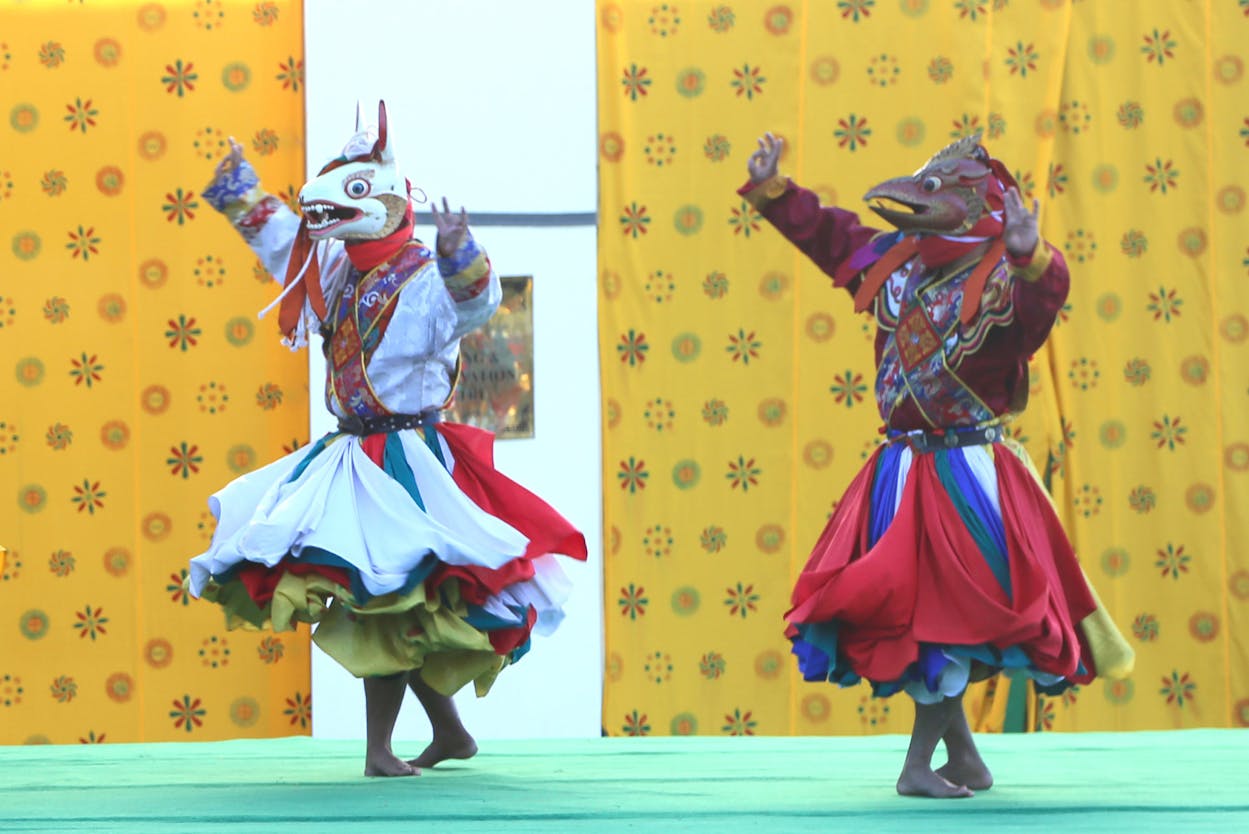When the University of Texas at El Paso stages its free performance of Handel’s English-language opera “Acis and Galatea” this Saturday, it will mark the latest expression of a century-old connection between El Paso and Bhutan.
The production—the culmination of a collaboration among the university, the El Paso Opera, and the Bhutanese Royal Academy of Performing Arts—got off the ground in 2004, when Aaron Carpenè, 50, an Australia-born conductor based in Italy had an idea: to stage a Western opera in the Himalayan kingdom. “Aaron casually asked me if opera had ever been performed in Bhutan,” recalled Preston Scott, a former adviser to the Bhutanese government. “I looked into it and found that it hadn’t—and that’s where the idea was born.”
Over the next few years, Carpenè, Scott, and the Italian director Stefano Vizioli approached several opera companies in Europe, the United States, and Australia to find a partner. But at the height of the recession, with shrinking budgets and declining audiences, none of the companies could take on the ambitious project. In 2008, an unlikely partner was contacted: UTEP, a state school better known for its football team than for its music program.
But the alliance made perfect sense, given the university’s deep-rooted connection to Bhutan. In 1914, the year the school was founded, National Geographic published one of the first major dispatches from the kingdom. Two years later, what was then the State School of Mines and Metallurgy lost several major buildings in a fire. Inspired by the National Geographic article, Kathleen Worrell, the wife of the dean, suggested that the new buildings be built in the Bhutanese style.
Since then, the cultural link has persisted. Most of the buildings on campus, even the parking garages, reflect the influence of Bhutanese architecture, incorporating features like flared roofs and red brick banding.
Intrigued by the prospect of strengthening the university’s ties to Bhutan while offering an unprecedented opportunity for students, the university president, Diana Natalicio, threw her support behind the opera project. The group planned to stage a performance in Bhutan, then bring the production to El Paso.
Last September, 32 students, staff members, and faculty embarked on the 24-hour, four-flight journey to Bhutan. When they finally made it to Thimphu, the capital, twelve time zones from El Paso, they joined a group that included top baroque musicians and professional opera singers from Italy, Cameroon, the United States, and Canada. The company spent two weeks in open-air rehearsals often attended by curious passers-by. “There were always lots of children and lots of dogs watching us,” Vizioli recalled.
“Acis and Galatea,” the story of a shepherd who falls in love with a semidivine nymph, was chosen because its pastoral setting and themes—“love, death, nature, reincarnation,” Vizioli said—seemed relevant to a Bhutanese audience. But storytelling was the least of the challenges faced by the group. Bhutan has a rich tradition of performance art, but very little infrastructure in place to support a Western-style production.
“There were no proscenium theaters,” said David Grabarkewitz, artistic director of the El Paso Opera. “They have only two or three pianos in the entire country.” Several of the instruments in the production, including a harpsichord and a bassoon, had never been played in Bhutan.
The organizers wanted to bridge artistic gaps by integrating elements specific to Bhutanese culture. Vizioli staged the performances outdoors and in the round, as is the tradition in Bhutanese productions. Four Bhutanese dancers, with masks and costumes, complemented the opera’s action. Artists from the Royal Textile Academy helped create costumes.
The month of rehearsals in Bhutan culminated in a performance on a windy afternoon in front of a full house, which included dignitaries as well as members of the Bhutanese royal family. “It wasn’t just an artistic experience, it was a deeply moving human experience,” Vizioli said.
It also expanded the worldview of both the dozen or so Bhutanese dancers and musicians who will travel to El Paso to perform in the final production at the end of the month, and UTEP students and staff. Emperatris Cabrera, a senior who lives in Juárez, Mexico, had never traveled farther from home than Salt Lake City. In Bhutan, she enjoyed eating yak burgers and hearing strange musical instruments for the first time.
“It was definitely culturally shocking, everything from the buildings to the restrooms to the fact that animals were everywhere,” she said. It was also inspirational—Cabrera will study ethnomusicology in graduate school, and plans to travel to India and Thailand later this year.
“El Paso is fairly isolated,” said Elisa Wilson, an associate professor of music at the university and the production’s chorus director. “For the students to experience going abroad, living in a completely different culture away from their support networks, and creating art in a professional environment—it was life changing. I saw them grow so much. After this experience, these students won’t be afraid to put themselves out there in the world.”






